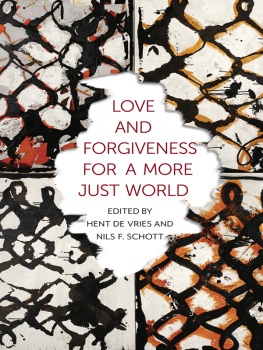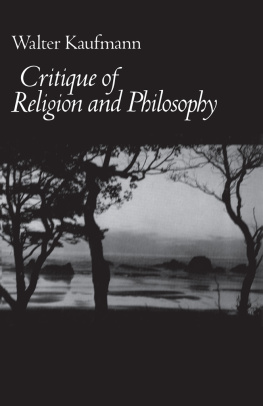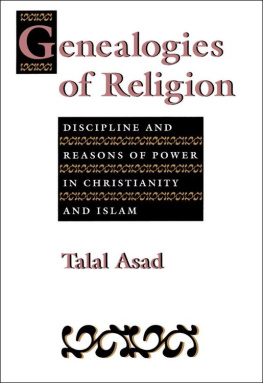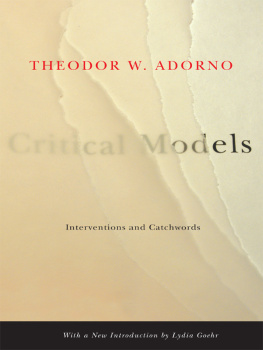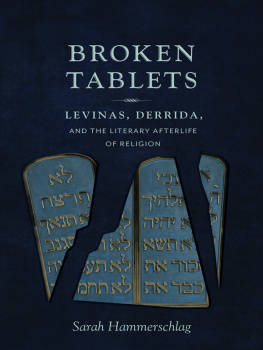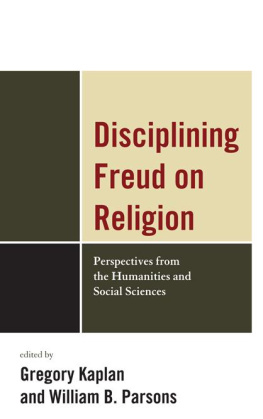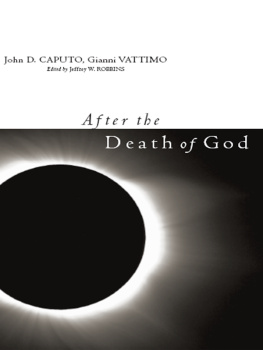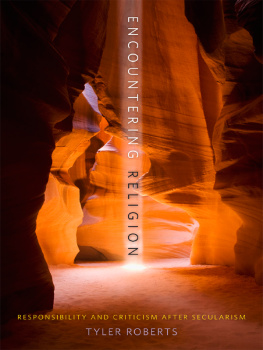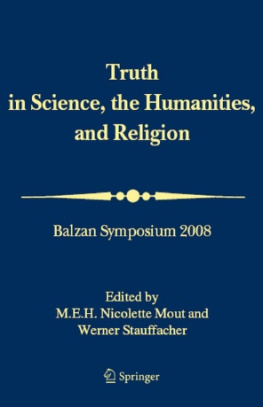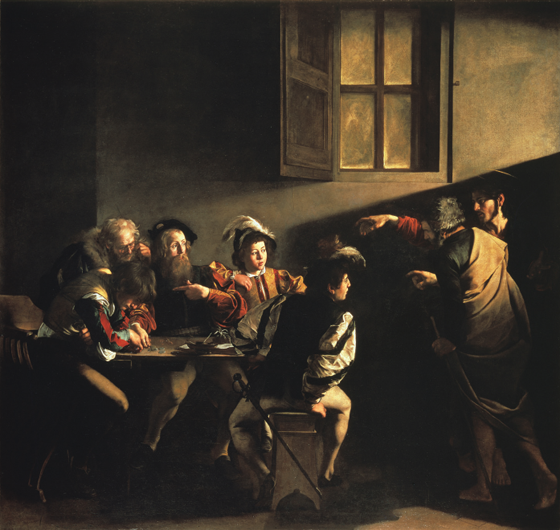Love and Forgiveness for a More Just World
RELIGION, CULTURE, AND PUBLIC LIFE
FRONTISPIECE The Calling of Saint Matthew by Caravaggio (Michelangelo Merisi da). Contarini Chapel. S. Luigi dei Fracesi, Rome, Italy. Photo credit: Scala/Art Resource, NY.
LOVE and FORGIVENESS for a MORE JUST WORLD
EDITED BY
Hent de Vries and Nils F. Schott
Columbia University Press New York
Columbia University Press
Publishers Since 1893
New York Chichester, West Sussex
cup.columbia.edu
Copyright 2015 Columbia University Press
All rights reserved
E-ISBN 978-0-231-54012-4
Library of Congress Cataloging-in-Publication Data
Love and forgiveness for a more just world / edited by Hent de Vries and Nils F. Schott.
pages cm.(Religion, culture, and public life)
Includes index.
ISBN 978-0-231-17022-2 (cloth: alk. paper)ISBN 978-0-231-54012-4 (e-book)
1. LovePhilosophy. 2. Forgiveness. 3. Conduct of life. I. Vries, Hent de, joint editor.
BD436.L6835 2015
128.46dc23
2015007309
A Columbia University Press E-book.
CUP would be pleased to hear about your reading experience with this e-book at .
COVER IMAGE: Tsibi Geva, Keffiyeh, four parts, acrylic on canvas, 2010
COVER DESIGN: Julia Kushnirsky
References to Web sites (URLs) were accurate at the time of writing. Neither the author nor Columbia University Press is responsible for URLs that may have expired or changed since the manuscript was prepared.
CONTENTS
Hent de Vries and Nils F. Schott
Haleh Liza Gafori
Jean-Luc Marion
Jean-Luc Marion
Regina M. Schwartz
Leora Batnitzky
Nils F. Schott
Orna Ophir
Albert Mason
Jacques Derrida
Jacques Derrida
Sari Nusseibeh
Hent de Vries
IN NOVEMBER 2010 Lawrence Sullivan asked one of us to be the chair of the Council of the Human Sciences at the Fetzer Institute, a private philanthropic foundation based in Kalamazoo, Michigan, established by broadcast pioneer John E. Fetzer (19011991). An earlier fruitful cooperation on the subject of so-called political theologies and public religions in the modern, postsecular world, when Larry was director of the Center for the Study of World Religions (CSWR) at Harvard University, thus received a worthy follow-up as he took over as Fetzers new president and CEO. Join its efforts and do something you havent done yet, potentially extending beyond the walls of academia and thinking in a different perspective and tone, seemed his surprising suggestion, as he himself signed up with a singular organization and even more daring mission that both seemed, well, off the beaten track.
was sponsored as part of a multiyear project to foster awareness of the power of love and forgiveness in the emerging global community. It was asked to disburse a significant annual sum of $550,000 and to help prepare a global gathering in Assisi, Italy, which took place in September 2012. The Council of the Human Sciences, for its part, sponsored a host of initiatives. It funded a radio soap opera in Arabic that focused on peace messaging for Palestinian youth in East Jerusalem, an Afghan womens poetry writing project, an arts project of the Sant Atizana Matenwa womens collective in a remote Haitian village, a comparative documentation project on social activism and service in Brazil, Cuba, and the United States (with special emphasis on the roles played by Dom Helder Cmara, a Brazilian bishop who worked for the poor and for human rights; Felix Varela, a Cuban priest who worked for peace and interreligious dialogue; and Dorothy Day, an American laywoman, activist, and peace builder who worked with the poor), and an innovative curriculum of the Fundacin para la Reconciliacin, allowing that organization to expand its program from Colombia into four more Latin American countries. And this list is far from complete.
The council further received a generous grant to organize one of two international humanities workshops on the very same topic. The first of these took place in June 2012 and the present volume contains some of the papers read and discussed on that occasion. An additional generous grant offered research assistance to further conceive an appropriate publication, bibliographic documentation and, if possible, a media archive that would capture some of the central intuitions and driving arguments behind the project as a whole.
In this context, we also received a grant to develop the concept and outline for a so-called Alternative Reality Game (ARG), tentatively called A Serious Game, so as to reimagine what, paradoxically, might be called a mobile canon (Hent de Vriess concept) or also a secular catechism (Nils F. Schotts term). Building on an exemplary body of work using digital technologies for positive social change, our idea was to use interactive digital technology to highlight exemplars and foster greater awareness of the power of love and forgiveness. With that aim in mind, the Humanities Council convened by the Fetzer Institute partnered with a New York based production company, Jumping Pages, which brings out animated interactive apps for iPad and iPhones, to create a pilot for children ages five to ten that could serve as a model for further tools for worldwide instruction in the subject of love and forgiveness. This interactive digital platform would aim to engage children in problem solving and to develop their awareness of love and forgiveness in action in the world around them through a creative storyline and imaginative characters. Furthermore, the members of the development team for the app, led by Rania Ajami, would engage in a reflective process and document their experience while integrating the concepts of love and forgiveness into their work.
As we bring part of this overall project to a provisional close, we would like to thank several individuals without whose support and inspiration we could not have accomplished our tasks. In addition to thanking the Fetzer Institute for its hospitality and unique financial assistance, we would to express our gratitude, first of all, to Lawrence E. Sullivan, whose visionary leadership and calm confidence in our abilities to do something out of the ordinary never relinquished and motivates us to this day. Second, to Michelle Scheidt, our program coordinator at the Fetzer Council, whose gentle but firm competence and limitless kindness carried us each step of the way. Thanks also to Haleh Gafori, Segahl Avin, and Rania Ajami for allowing us to include their creations not only in this book but also on the Web site at Columbia University Press that accompanies it. We would like to express our thanks further to the

